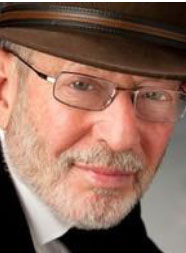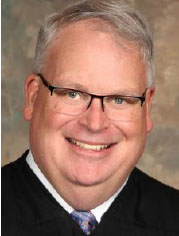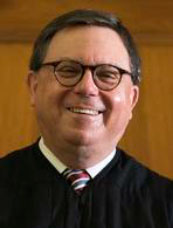Criminal Law
Views From The Bench On Sentencing Representation: Part 12
By Alan Ellis

“Tell me something your client did when no one was keeping score,” responded then-U.S. District Court Judge Ralph Erickson of North Dakota to a query when I interviewed him late last year. I had asked him what an attorney can do when faced with representing a client who has committed a reprehensible offense with a lengthy criminal record. “I think well of people who act out of the goodness of their hearts,” he added. (Judge Erickson has since been elevated to the U.S. Court of Appeals for the Eighth Circuit.)
Judge Erickson also cited several things that drove him crazy when he was a sentencing judge: lawyers who cite boiler plate cases; lawyers who ask for a ridiculously low sentence to grandstand for their client, family and friends; lawyers who are completely unprepared. He also found it annoying when lawyers don’t present evidence at the sentencing hearing in support of their sentencing memorandum arguments. “Now that I am on the Eighth Circuit reviewing sentencing appeals,” he says, “the need for this is driven home every day. They need to make a record for sentencing judges so that they can craft sentences and reasons for it.”

Chief Judge Mark R. Hornak of the Western District of Pennsylvania in Pittsburgh talked about defendants whose crime was out of character with an otherwise law-abiding life — not necessarily only those who qualified for a U.S. Sentencing Guidelines 5K2.2 aberrant behavior departure. “What was this guy thinking when he did what he did?” Judge Hornak asks. “A lawyer needs to help me understand why his client did what he did, why it is out of character, and why he is not going to do it again. Why should I draw this conclusion?”
Asked about his thought process regarding sentencing, Chief Judge Brian Anthony Jackson of the Middle District of Louisiana in Baton Rouge says he starts to think about what sentence he is going to impose when he first gets the presentence report. Speaking at the ABA White Collar Bar Institute Program in San Diego in February of this year, Judge Jackson strongly encouraged lawyers to get in touch with the U.S. Probation Office and advocate for their clients as early as possible. Judge Jackson explained that if a lawyer is able to establish a good rapport and credibility with the probation officer, it may help him or her become favorably disposed to the client and the probation officer might even then rule on close guideline calls with the arguments put forth by defense counsel.

All three judges want lawyers to provide specific treatment plans (if needed, for example, for mental health or substance abuse) for their clients, particularly if they are seeking a probationary or short sentence with supervised release. Judge Erickson found it very helpful when lawyers recommended a sentence with a well-crafted rationale. “Lawyers can shorten the length of the sentence by suggesting certain conditions of supervised release,” Judge Jackson says. “I respect lawyers who give me a specific treatment plan to help me understand the client is not going to reoffend. It is important to see a defendant is being put on the right path so he won’t reoffend. I always find it helpful when lawyers use in appropriate cases mental health experts.” Here he doesn’t give much credence to “professional hired guns,” but instead values independent experts and treatments providers who point out the strength and witnesses of the defendant. Judge Jackson also found lawyers to be particularly effective when they showed him that their client had been or was very likely to be rehabilitated and that they “had gotten it.”
Allocution
“Lawyers should know which clients should allocate and which shouldn’t and prepare the ones who should for allocution,” says Judge Erickson. “It is very important for the lawyer to prep the client for allocution and if the client is going to read anything, to review what the client has written. One of the most effective allocutions I ever heard was in a drug case where the defendant had sold fentanyl and the victim died. At sentencing, he turned to the parents of the victim and said ‘No punishment would be enough. If I could go back and change everything, I would.’”

Chief Judge Jackson feels that lawyers need to prepare a client for allocution even if they have gone to trial and testified in their own behalf. “Even in those cases,” he remarks, “it is important that they acknowledge their victims who are hurting. It’s very important for a lawyer to prepare his client for allocution. Do the job you are retained to do.”
The Sentencing Hearing
Asked what a lawyer can do at the sentencing hearing when he or she has submitted an otherwise quality sentencing memorandum, Judge Hornak says that lawyers should emphasize the important issues so he doesn’t miss anything. “What a lawyer does in court is important to the defendant, his family, friends, as well as victims and law enforcement officers who are present,” Judge Hornak declares. “What I am going to do will impact a person’s life in the future as well as that of his family and friends, therefore, everything that I get from counsel at sentencing is very important.”
One of his concerns involves lawyers who miss an opportunity to say something important about their client. They should interview his employer and coworkers. “Tell me what they think about him,” he urges. “One of the best character witnesses that I have heard from was an employer who said that he was taking time off from a very busy schedule to come into court and speak about the defendant. He told me that if I did not sentence him to imprisonment, he would welcome him back on the job tomorrow.”
Similarly, Judge Jackson says, “Defense counsel should continue to advocate for their client up to and until the moment I am imposing sentence.” He added, “The lawyer, however, should keep his or her comments brief, adding that they should condense what they could say in 10 to 15 minutes into two to three minutes.” He agreed with me that one of the best things that a lawyer can do for his client is say, ‘Your Honor, I hereby tender a check in full payment of restitution.’”
The Sentencing Memorandum
Judge Hornak finds it helpful if a lawyer sets forth the 18 U.S.C. Section 3553(a) factors and explain why how the defendant fits within each of these criteria.
Disparity
“I didn’t want to give a defendant a day longer in prison than needed,” Judge Erickson told me. “I don’t mind a lawyer pointing out to me what I’ve done in previous similar cases. I’m also interested in hearing what other judges who I respect have done in similar cases. It is, however, important for me to know exactly what happened in that particular case before it can have an impact on me.”
Credibility
Judge Erickson says he never minded a lawyer who he respected vouching for his client so long as he explained why he was doing so pointing out his strengths and weaknesses. “This often was very helpful in my seeing the whole picture.”
Health
A client’s health issues also were important to Judge Erickson: “I am aware of the cost of incarcerating ill inmates. If I can be shown that this is an isolated incident, that the defendant won’t reoffend, that he would be better treated in the community and that the sentencing proposal includes appropriate supervised release conditions that can serve to accomplish this, then I could be persuaded from imposing an otherwise lengthy deserved prison sentence.”
Sentencing Recommendations
While all three judges welcome reasonable sentencing recommendations from lawyers, when they argue for probationary or relatively low sentences followed by supervised release, the judges need to be informed of conditions that will lead to the defendants not reoffending. In such cases, Judge Jackson wants lawyers to provide specific treatment plans — mental health, drug and alcohol, etc. — for their clients. “I respect lawyers who give me a specific treatment plan to help me understand the client is not going to reoffend,” he says. “It is important to see a defendant put on the right path so he won’t reoffend.”
Judge Hornak sees both probation and supervised release as serious punishment, not merely “add ons.” He takes 18 U.S.C. Section 3661 (no limitation shall be placed on information supplied to a sentencing judge) very seriously and will accept virtually anything from defense counsel, noting that “at worst, it might not move the needle, but may very well trigger the need for a recess to allow me to think further about what I heard from defense counsel in court prior to imposing sentence.”
Sentencing Videos
Judge Jackson says that a lawyer should humanize his client as much as possible in the sentencing memo — by including photos of the defendant’s family, for example. However, he believes that a sentencing video with these images and testimonials can be even more powerful.
Judge Erickson has also seen sentencing videos and found several more useful than what a lawyer could say in a sentencing memorandum or at the hearing. He has found that character witnesses speaking in a sentencing video are very helpful, but family members less so.
Conclusion
Independent Mental Health Experts
It goes without saying that an evaluation by a mental health expert appointed by the court or agreed upon by the parties is going to carry more weight with the sentencing judge than other reports. I often ask the assistant U.S. attorney who they like to use and then retain that person. Experts who generally testify for the prosecution are delighted to testify for the defense. It burnishes their resume and increases their credibility in future cases. Several years ago, I asked an AUSA who his office liked to use. After a stunned silence, he told me he would get back to me and he did. I retained the expert who gave a very favorable evaluation for my client. Needless to say, it was bullet proof.
Advocate with USPO Early and Often
Use your advocacy skills with the U.S. probation officer even before the presentence investigation interview. Send him a few of your best character letters and a sentencing video if you’ve done one to help the probation officer become favorably disposed to your client prior to when you all meet.
Sentencing Videos
I’m becoming a big fan of sentencing videos with each sentencing that I do. A picture is worth a thousand words and a sentencing video is worth a thousand pictures. I often quote from a few of the better sound bites at the beginning of my sentencing memorandum. Unless there are arguments to be made about disputed guidelines, it serves to substantially shorten the sentencing memorandum which most judges appreciate. In virtually every case that I’ve had where I’ve used a sentencing video, it was a game changer. I’ve even starting to use them in plea negotiation cases to get the prosecution to think favorably toward my clients.
Alan Ellis, a past president of the National Association of Criminal Defense Lawyers, is a criminal defense lawyer with offices in San Francisco and New York. He practices in the areas of federal sentencing and prison matters, and was awarded a Fulbright Senior Specialist Award by the U.S. State Department in 2007 to conduct lectures in China on American criminal law and its constitutional protections. He is the co-author of “Federal Prison Guidebook: Sentencing and Post Conviction Remedies.”
The opinions expressed are those of the author(s) and do not necessarily reflect the views of the firm, its clients, or Portfolio Media Inc., or any of its or their respective affiliates. This article is for general information purposes and is not intended to be and should not be taken as legal advice.
